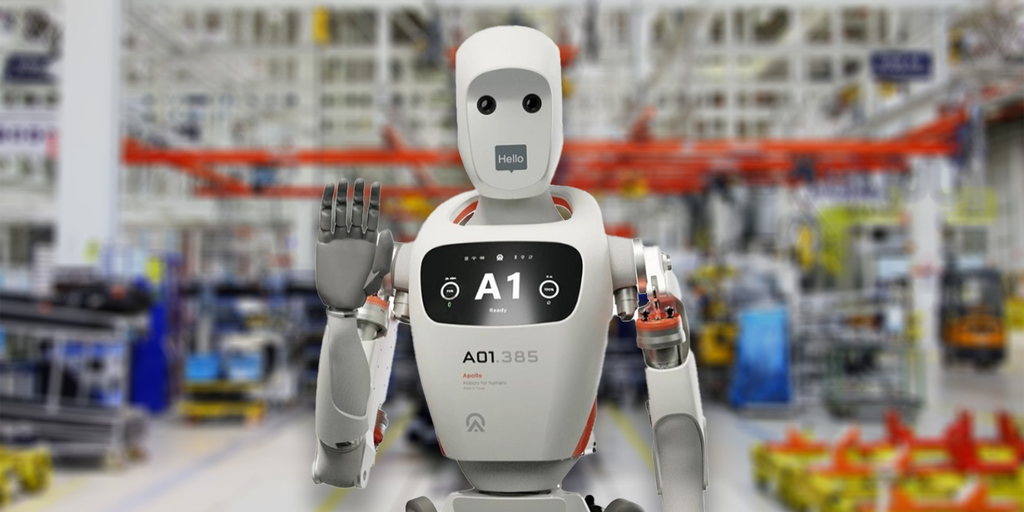Mercedes-Benz Partners with Apptronik to Integrate AI into Factory Robots
German automotive giant Mercedes-Benz has announced a collaboration with Austin-based AI developer Apptronik to enhance its factory robots with artificial intelligence, marking a significant step towards innovation in the manufacturing industry. The partnership, revealed on Friday, represents Apptronik’s inaugural commercial agreement utilizing its Apollo robots in real-world applications, particularly within the automotive sector. Originating from the Human Centered Robotics Lab at the University of Texas at Austin in 2016, Apptronik has made remarkable strides in the realm of humanoid robotics.
Innovative Apollo Robot Developed by Apptronik
Apptronik’s flagship creation, the Apollo robot, epitomizes cutting-edge technological advancements with its humanoid design, standing at nearly six feet tall, weighing 160 lbs, and possessing the capacity to lift up to 55 lbs. With a battery life of four hours, Apollo boasts versatile deployment options, from stationary positions to ambulatory functions through specialized legs. The inclusion of LED lights in Apollo’s head and chest not only enhances its visual appeal but also allows for seamless communication of essential information such as status updates during charging and data processing.
Automating Manual Labor with Robotics
Mercedes-Benz intends to leverage the capabilities of the Apollo robot to automate mundane, physically demanding, repetitive manual tasks, as stressed by Apollo’s CEO Jeff Cardenas. This strategic move by Mercedes-Benz serves as a blueprint for other organizations looking to streamline operations and enhance efficiency through the adoption of humanoid robots. By integrating robotic solutions into conventional factory settings, companies like Mercedes-Benz can avoid costly structural overhauls while maximizing productivity.
Potential Impact of AI and Robotics in the Workforce
As the integration of AI and robotics becomes increasingly prevalent across diverse industries, concerns regarding workforce displacement and the redefinition of job roles have surfaced. The symbiotic relationship between technology and human resources poses complex challenges for policymakers and ethicists alike, prompting a critical evaluation of the socio-economic implications of AI adoption. Mercedez-Benz’s collaboration with Apptronik represents a preliminary foray into assessing the transformative potential of robotic technologies within the automotive manufacturing domain.
Future Prospects and Industry Trends
While the discourse around humanoid robots and AI remains a subject of scrutiny and speculation, industry experts such as UC Berkeley’s Professor Ken Goldberg emphasize the importance of contextual factors in determining the practicality of such innovations. Companies like Figure AI, OpenAI, and Honda are actively investing in humanoid robotics for mass production, heralding a new era of automation in hazardous environments and space exploration. The rapid advancement of AI models and robotics heralds a paradigm shift in manufacturing processes, underscoring the pivotal role of human-robot collaboration in driving operational efficiency and technological progress.
Image/Photo credit: source url





